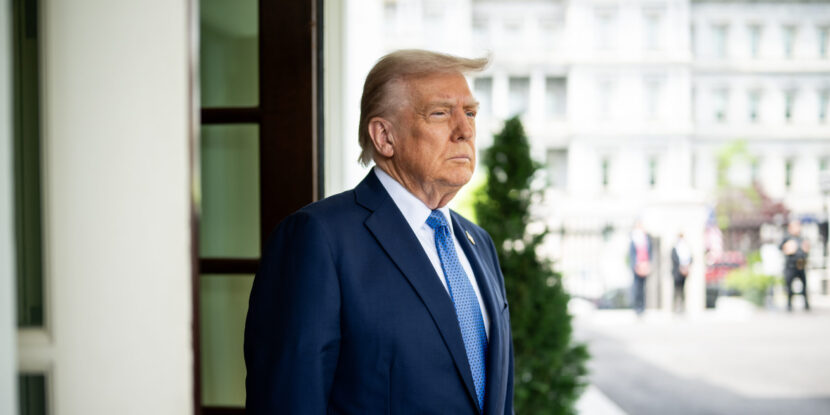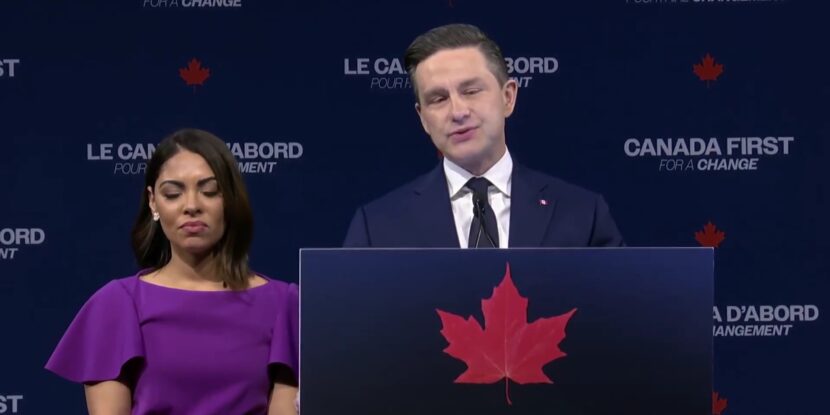
PULSE POINTS:
❓What Happened: Amazon reportedly planned to add the estimated cost of tariffs to its product prices. The Chinese online retailer Temu has made a similar move, though the foreign e-commerce company admits in fine print that the additional ‘tariff’ costs do not directly correlate to the U.S. import duties on Chinese goods. However, Amazon now claims that the tariff estimates were being considered only by Amazon Haul and were “never a consideration for the main Amazon site and nothing has been implemented on any Amazon properties.”
👥 Who’s Involved: President Donald J. Trump, Jeff Bezos, Amazon, White House press secretary Karoline Leavitt.
Your free, daily feed from The National Pulse.
📍 Where & When: Washington, D.C., April 29, 2025.
💬 Key Quote: “This is a hostile and political act by Amazon,” said Karoline Leavitt after the plan to add tariff estimates to pricing was initially reported. Amazon responded later Tuesday morning, claiming: “The team that runs our ultra low cost Amazon Haul store has considered listing import charges on certain products. This was never a consideration for the main Amazon site and nothing has been implemented on any Amazon properties.”
⚠️ Impact: The decision could have affected Amazon’s political relations, though the abrupt announcement by the e-commerce giant that they would not pursue the pricing change may cool tensions with the White House.
IN FULL:
Tensions between the White House and Amazon briefly intensified after President Donald J. Trump criticized the retailer’s reported plans to display estimated tariff costs on its product listings. The scheme prompted a sharp reaction from the Trump administration, leading to accusations of political motivations and foreign interference.
White House Press Secretary Karoline Leavitt addressed the issue in a statement on Tuesday, April 29. According to Leavitt, President Trump viewed Amazon’s move as “hostile and political,” labeling it an attack on American interests. The conflict arose after anonymous sources leaked to the corporate media Amazon’s intention to highlight the tariffs imposed by the Trump administration on imports from countries like China.
Leavitt did not hold back in her criticism of the online retail giant, questioning Amazon’s timing. “Why didn’t Amazon take similar actions during the Biden administration when inflation rates soared to record levels?” she queried, suggesting that Amazon’s motives might have partisan underpinnings.
Further, Leavitt raised concerns over Amazon’s international affiliations, hinting that the company’s collaborations could potentially serve as channels for foreign narratives. She referenced reports by Reuters indicating Amazon’s partnerships with entities linked to Chinese propaganda efforts. Notably, the Chinese online retailer Temu has made a similar move, though the foreign e-commerce company admits in fine print that the additional ‘tariff’ costs do not directly correlate to the U.S. import duties on Chinese goods.
Following the firm White House response, Amazon clarified its pricing policy, stating: “The team that runs our ultra low cost Amazon Haul store has considered listing import charges on certain products. This was never a consideration for the main Amazon site and nothing has been implemented on any Amazon properties.”
Despite the White House’s strong response and past friction between Trump and Amazon’s founder, Jeff Bezos, the technology billionaire has recently been more communicative and open to accommodating the White House, possibly explaining the apparent backtrack.

PULSE POINTS:
❓What Happened: Canadian Conservative Leader Pierre Poilievre was defeated in his Carleton, Ontario riding (electoral district) by Liberal candidate Bruce Fanjoy. Poilievre received 38,581 votes, while Fanjoy secured 42,374 votes. The Liberal Party, led by Prime Minister Mark Carney, maintained national leadership, although in a minority position.
👥 Who’s Involved: Key figures include Pierre Poilievre, Bruce Fanjoy, Prime Minister Mark Carney, and New Democratic Party (NDP) Leader Jagmeet Singh.
Your free, daily feed from The National Pulse.
📍 Where & When: The elections took place on Monday across Canada, including Poilievre’s riding in the Ottawa-area Carleton, Ontario.
💬 Key Quote: Poilievre tried to spin the party’s failure, saying, “We got the highest share of the vote our party has received since 1988.”
⚠️ Impact: The loss raises questions about Poilievre’s future as Conservative leader. The Liberals continue in government with minority rule, holding 168 seats. The Conservatives were a reasonably close second, gaining seats nationwide.
IN FULL:
Canadian Conservative Party Leader Pierre Poilievre has been unseated in his Ottawa-area riding (electoral district) of Carleton by Liberal candidate Bruce Fanjoy. The election results saw Poilievre garnering 38,581 votes while Fanjoy secured 42,374. This victory for Fanjoy is significant against the backdrop of the national elections, where Prime Minister Mark Carney’s Liberal Party retained control of the government, albeit with a minority, returning to Parliament with 168 seats.
Poilievre’s defeat in Carleton marks a notable change, as he has held this seat since 2004. His loss is a striking personal rebuke, given the Conservative Party’s national performance, which saw them gain over 20 seats despite their failure to oust the Liberals. In Canada, as in the United Kingdom, Prime Ministers and opposition leaders typically operate from within Parliament, leaving Poilievre’s leadership in doubt.
The Conservatives were making headway in the polls earlier in the year, at one point enjoying a 20-point lead. These figures shifted following the resignation of unpopular former Prime Minister Justin Trudeau and the subsequent installation of Carney as leader of the Liberals. Some perceived Poilievre as adopting a stance that was too soft with respect to the ongoing trade dispute between Canada and the U.S., while others believe he became too focused on criticizing U.S. President Donald J. Trump rather than the Liberal government. At the same time, many grassroots conservatives were wary of his apparent weakness on immigration, reducing motivation to vote for his party.
While addressing party members, Poilievre attempted to put a brave face on the national results, saying, “We got the highest share of the vote our party has received since 1988.”
New Democratic Party Leader Jagmeet Singh also lost his seat in Vancouver and has opted to resign as party head. The leftist party was battered badly in the elections and is currently projected to lose around two-thirds of its seats.
WATCH:
show less

 2 months ago
6
2 months ago
6








 English (US) ·
English (US) ·